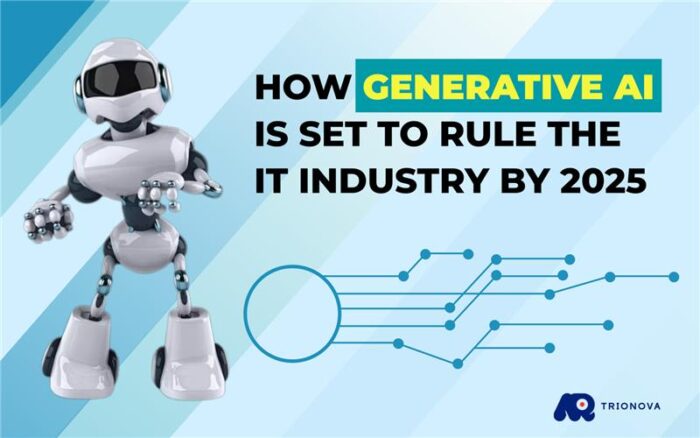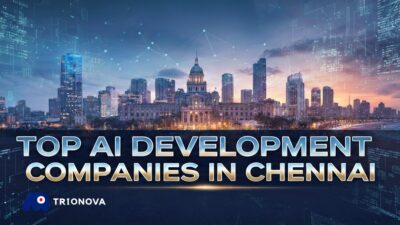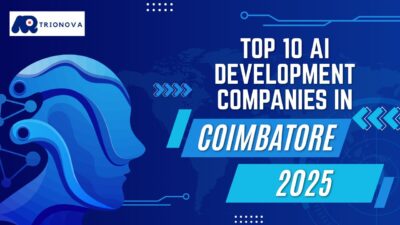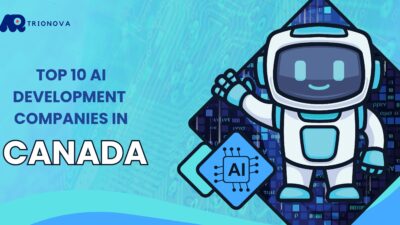The IT industry has always been at the forefront of innovation, constantly evolving to meet the demands of a rapidly changing digital landscape. In recent years, one of the most transformative technologies to emerge is Generative Artificial Intelligence (Generative AI). By 2025, Generative AI is poised to revolutionize the IT industry, reshaping how businesses operate, innovate, and deliver value. From automating complex tasks to enabling unprecedented levels of creativity, Generative AI is not just a trend—it’s a paradigm shift that will redefine the future of technology.
What is Generative AI?
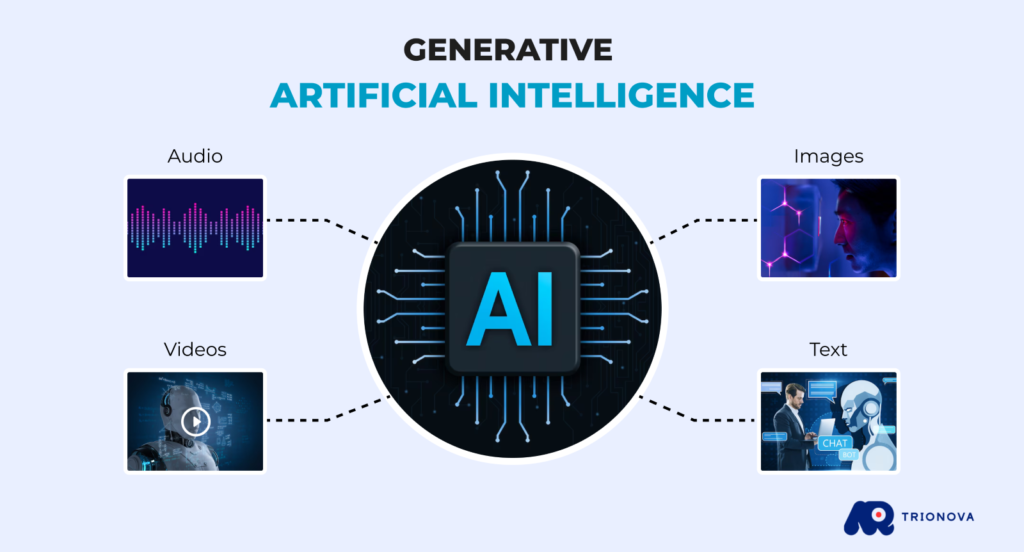
Generative AI refers to a subset of artificial intelligence that focuses on creating new content, whether it’s text, images, code, music, or even entire virtual environments. Unlike traditional AI, which is designed to analyze and interpret data, Generative AI leverages advanced machine learning models, such as Generative Adversarial Networks (GANs) and Large Language Models (LLMs), to produce original outputs that mimic human creativity.
Examples of Generative AI tools include OpenAI’s ChatGPT, DALL·E, and GitHub’s Copilot. These tools have already demonstrated their potential to automate tasks, enhance productivity, and unlock new possibilities across industries. By 2025, Generative AI is expected to become even more sophisticated, integrated, and indispensable in the IT sector.
The Role of Generative AI in the IT Industry
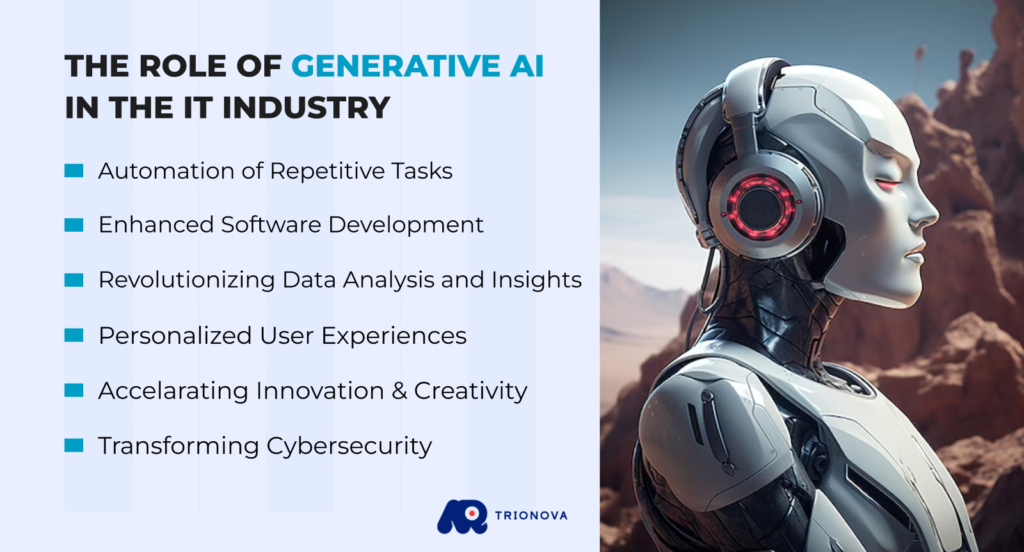
1. Automation of Repetitive Tasks

One of the most immediate impacts of Generative AI in the IT industry is its ability to automate repetitive and time-consuming tasks. From writing code to generating reports, AI-powered tools can handle mundane activities with remarkable efficiency. For instance, GitHub’s Copilot assists developers by suggesting code snippets, debugging, and even writing entire functions. This not only accelerates development cycles but also allows IT professionals to focus on more strategic and creative aspects of their work.
By 2025, we can expect Generative AI to automate even more complex tasks, such as system monitoring, network optimization, and cybersecurity threat detection. This will lead to significant cost savings and improved operational efficiency for IT companies.
2. Enhanced Software Development
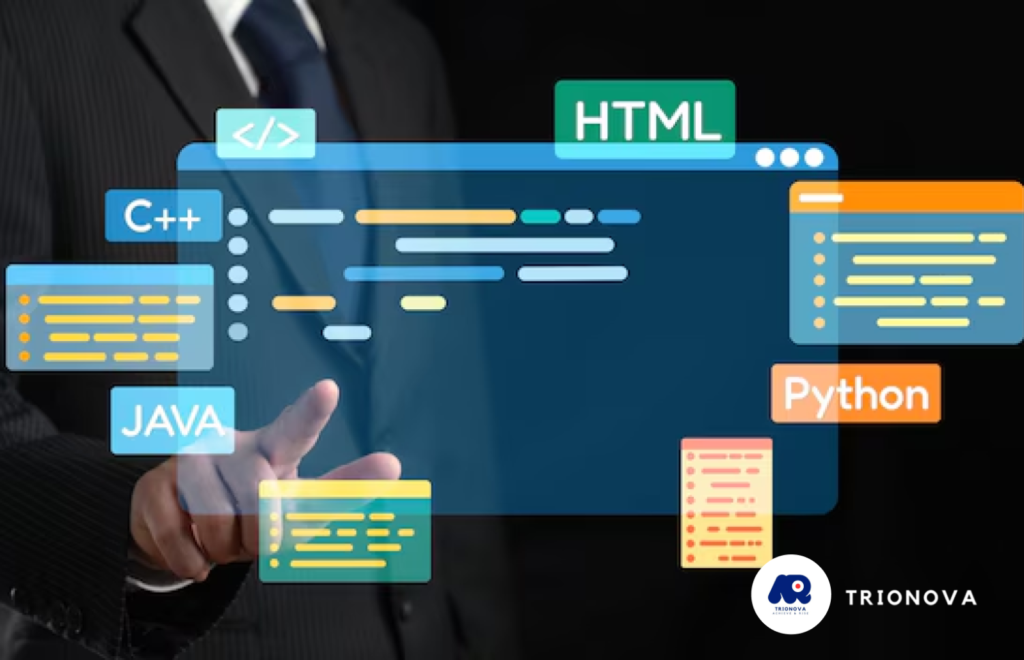
Generative AI is set to transform the software development lifecycle. With tools like ChatGPT and Copilot, developers can generate code, troubleshoot errors, and optimize performance in real-time. These AI-driven assistants can also help bridge the skills gap by enabling less experienced developers to produce high-quality code.
Moreover, Generative AI can facilitate rapid prototyping and testing. By generating multiple versions of a software application, developers can quickly identify the most effective solutions. This will reduce time-to-market and enable IT companies to stay competitive in an increasingly fast-paced industry.
3. Revolutionizing Data Analysis and Insights

Data is the lifeblood of the IT industry, and Generative AI is poised to revolutionize how data is analyzed and utilized. Traditional data analysis methods often require significant manual effort and expertise. Generative AI, however, can process vast amounts of data, identify patterns, and generate actionable insights in a fraction of the time.
For example, AI models can analyze customer behavior, predict market trends, and recommend personalized solutions. By 2025, Generative AI will enable IT companies to make data-driven decisions with unparalleled accuracy and speed, driving innovation and growth.
4. Personalized User Experiences
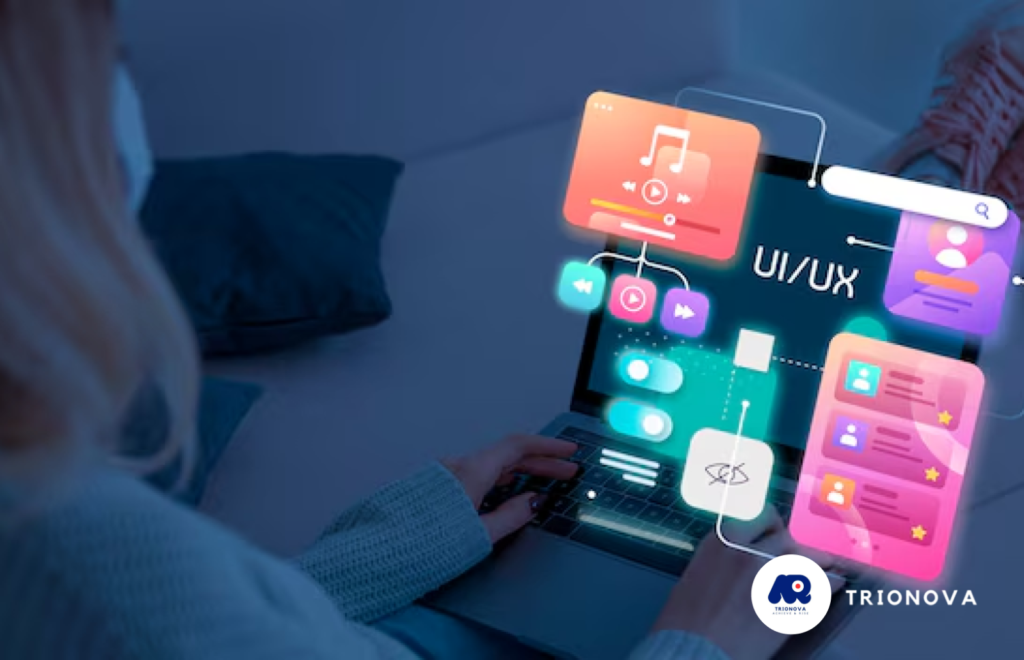
Generative AI is also transforming how businesses interact with their customers. By leveraging AI-generated content, companies can create highly personalized user experiences like UI/UX Design. For instance, e-commerce platforms can use Generative AI to design custom product recommendations, while streaming services can generate tailored content playlists.
In the IT industry, this capability extends to software and application development. Generative AI can help create user interfaces that adapt to individual preferences, improving usability and customer satisfaction. By 2025, personalization will be a key differentiator for IT companies, and Generative AI will be at the heart of this transformation.
5. Accelerating Innovation and Creativity

Generative AI is not just about automation—it’s also a powerful tool for innovation. By generating new ideas, designs, and solutions, AI can inspire creativity and push the boundaries of what’s possible. For example, AI-generated art and music are already gaining traction, and similar principles can be applied to IT.
In software development, Generative AI can help engineers brainstorm new features, optimize algorithms, and explore unconventional solutions. This will foster a culture of innovation within the IT industry, enabling companies to stay ahead of the curve.
6. Transforming Cybersecurity
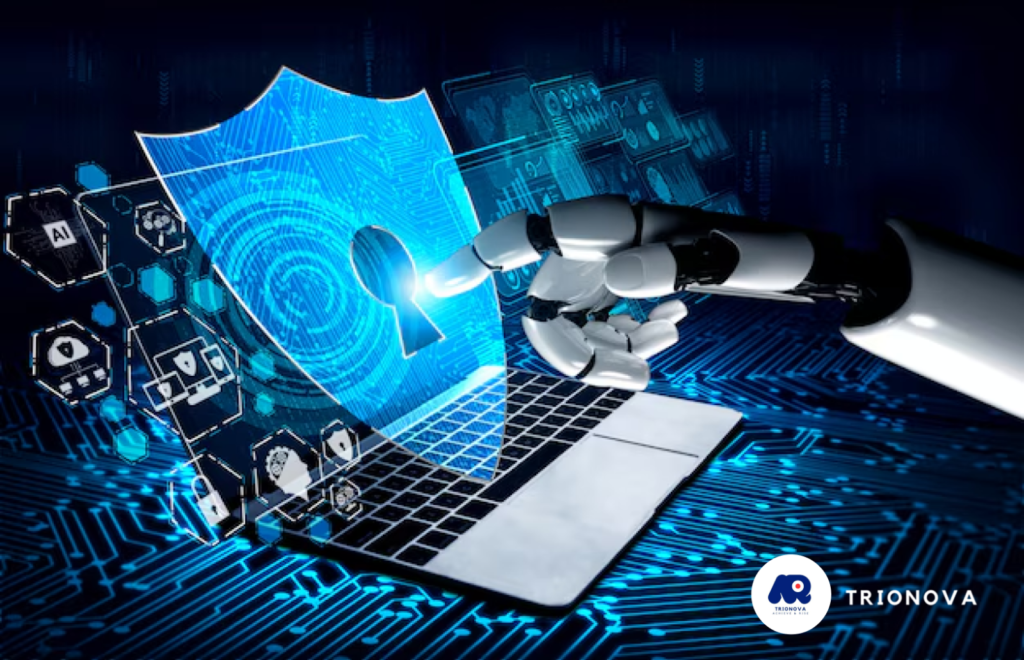
As the IT industry becomes increasingly digital, cybersecurity is a growing concern. Generative AI can play a crucial role in enhancing cybersecurity measures. AI models can simulate cyberattacks, identify vulnerabilities, and generate robust defense mechanisms. This proactive approach will help IT companies stay one step ahead of cybercriminals.
Additionally, Generative AI can be used to create secure authentication systems, such as AI-generated biometric data. By 2025, these advancements will make cybersecurity more effective and resilient, safeguarding sensitive data and systems.
Challenges and Ethical Considerations
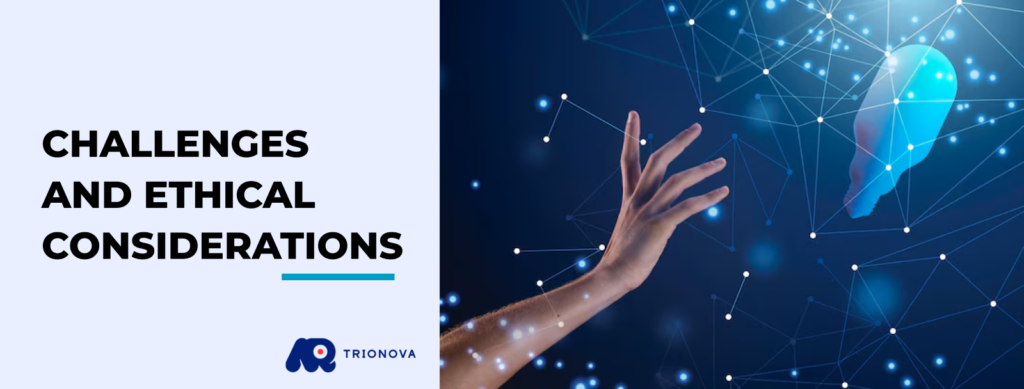
While the potential of Generative AI is immense, it also comes with challenges and ethical considerations. One major concern is the risk of bias in AI-generated outputs. Since AI models are trained on existing data, they may inadvertently perpetuate biases present in the training data. IT companies must prioritize fairness and inclusivity when developing and deploying Generative AI solutions.
Another challenge is the potential for job displacement. As Generative AI automates more tasks, there is a risk that certain roles may become obsolete. However, this can be mitigated by upskilling employees and focusing on roles that require human creativity and critical thinking.
Finally, there are concerns about the misuse of Generative AI, such as the creation of deepfakes or malicious content. IT companies must establish robust ethical guidelines and regulatory frameworks to prevent misuse and ensure responsible AI deployment.
The Future of Generative AI in IT
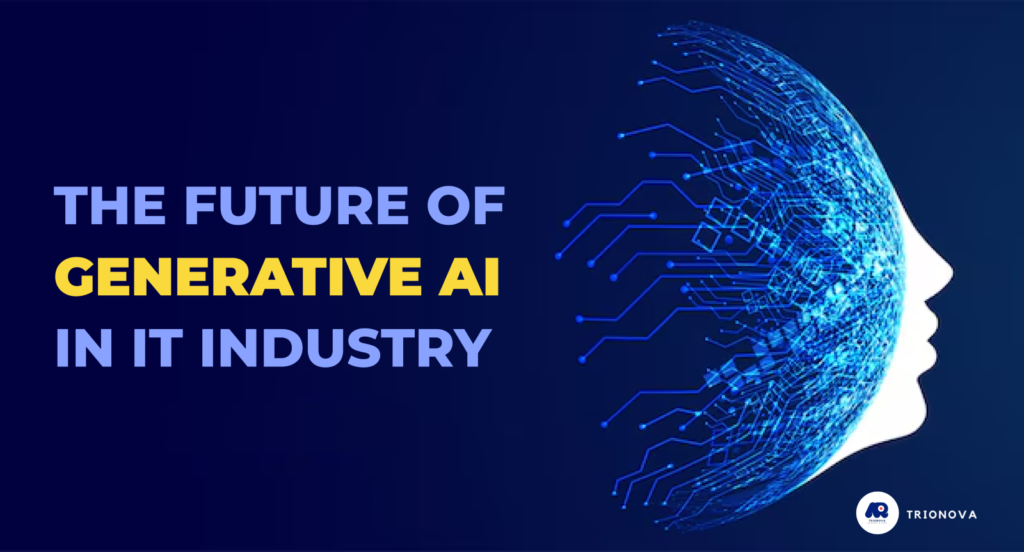
By 2025, Generative AI will be deeply integrated into the IT industry, driving innovation, efficiency, and growth. Companies that embrace this technology will gain a competitive edge, while those that resist risk being left behind. However, success will depend on how effectively businesses navigate the challenges and ethical considerations associated with Generative AI.
As we look to the future, one thing is clear: Generative AI is not just a tool—it’s a game-changer. By harnessing its power, the IT industry can unlock new possibilities, solve complex problems, and create a better, more connected world. The question is not whether Generative AI will rule the IT industry by 2025, but how quickly and responsibly we can adapt to this transformative technology.

If you’re looking to stay ahead in the IT industry, now is the time to explore the potential of Generative AI. At Trionova, we’re committed to helping businesses leverage cutting-edge technologies to drive innovation and success. Contact us today to learn more about how Generative AI can transform your organization.

